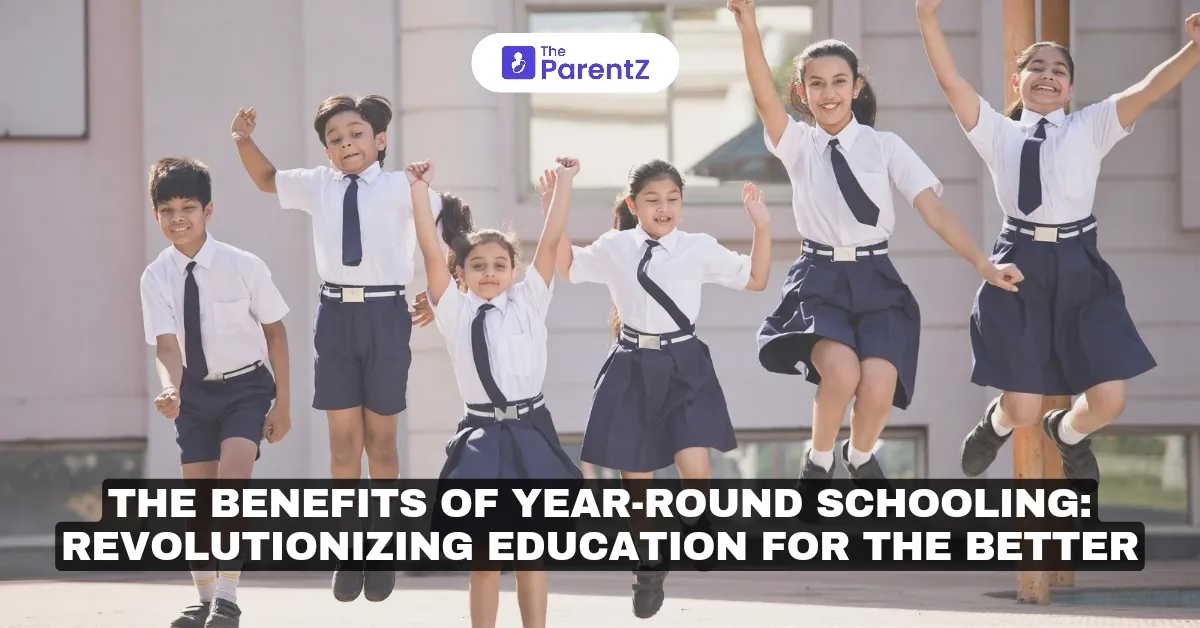Education systems around the world have been structured traditionally around long summer breaks, a model that dates back to agrarian societies when children were needed to help with farming during the summer months. While this system made sense in the past, modern times call for a more dynamic and efficient approach to education. Year-round schooling (YRS) has emerged as a potential alternative, offering a restructured academic calendar designed to optimize learning and provide numerous benefits to students, parents, and educators. Below, we explore the key advantages of year-round schooling and its potential to revolutionize education.
What is Year-Round Schooling?
Year-round schooling doesn't mean that students spend more days in school; rather, it redistributes the typical 180 instructional days across the entire year. Instead of a long summer break, the school calendar is divided into shorter, more frequent breaks (known as intersessions), typically ranging from 2-4 weeks after each quarter. Popular models include the 45-15 schedule (45 days of instruction followed by 15 days off) and the 60-20 model.
Benefits of Year-Round Schooling
1. Reduced Summer Learning Loss
One of the most significant benefits of YRS is its ability to combat the "summer slide." Research has shown that students, especially those from lower-income families, tend to lose a significant amount of knowledge during the extended summer break. With shorter and more frequent breaks, year-round schooling ensures that students retain information more effectively, reducing the need for extensive review periods at the start of each academic year.
2. Consistent Routine for Students
The traditional long summer break often disrupts the daily routines of students, making it difficult for them to transition back into academic life. Year-round schooling promotes a more consistent routine, which helps students stay focused and engaged throughout the year. This consistency can be particularly beneficial for younger students, who thrive on structure.
3. Improved Academic Performance
With more frequent breaks, students can recharge and return to school with renewed energy and focus. This approach minimizes burnout and can lead to improved academic performance. Additionally, the shorter breaks reduce the chances of students forgetting critical concepts, allowing them to build on their knowledge more effectively.
4. Better Use of School Facilities
Year-round schooling optimizes the use of school infrastructure by spreading out the student population over the year. In multi-track systems, where students attend school in staggered schedules, schools can accommodate more students without needing to build additional facilities, saving costs and reducing overcrowding.
5. Flexibility for Families
The shorter breaks offered by YRS can provide families with more opportunities to plan vacations at off-peak times, potentially saving money and avoiding the crowded summer travel season. Additionally, consistent breaks allow families to spend quality time together throughout the year.
6. Opportunities for Enrichment
Intersessions in YRS provide an opportunity for students to engage in enrichment activities, remedial classes, or extracurricular programs. These sessions can help struggling students catch up and allow high-achieving students to explore new interests, creating a more personalized learning experience.
7. Reduced Teacher Burnout
Teachers, like students, can benefit from the shorter, more frequent breaks. Regular intersessions give educators time to recharge, plan lessons, and participate in professional development activities. This can reduce burnout and enhance the overall quality of teaching.
8. Alignment with Modern Workforce Needs
The year-round school calendar aligns better with the schedules of working parents, who often struggle to find childcare during the long summer break. With consistent schooling throughout the year, parents can maintain their routines and avoid the stress of managing extended periods without structured childcare.
Challenges and Considerations
While the benefits of YRS are compelling, it’s essential to address potential challenges, such as:
- Logistical Adjustments: Transitioning to a year-round system requires changes in transportation, school staffing, and extracurricular scheduling.
- Community Resistance: Many families and educators are accustomed to the traditional calendar and may resist change due to personal or cultural reasons.
- Impact on Summer Activities: Summer camps, vacations, and seasonal employment for students may be affected.
- Implementation Costs: Initial costs for restructuring the academic calendar and reconfiguring school operations can be high.
Conclusion
Year-round schooling presents an innovative approach to modern education, offering solutions to many of the challenges posed by the traditional academic calendar. By reducing summer learning loss, improving academic performance, and providing flexibility for families and teachers, this system has the potential to enhance the overall educational experience. While transitioning to YRS may require significant adjustments, the long-term benefits far outweigh the challenges. As societies evolve, education systems must adapt to meet the needs of students in a fast-paced, ever-changing world. Year-round schooling could be the key to unlocking a brighter future for learners everywhere.





Be the first one to comment on this story.